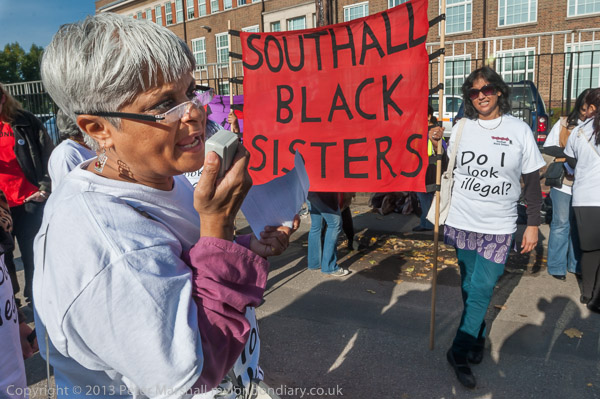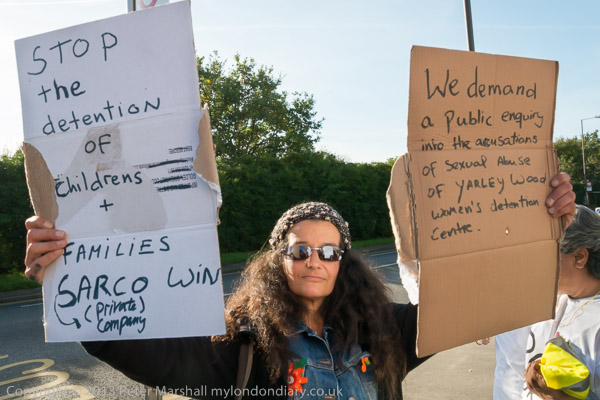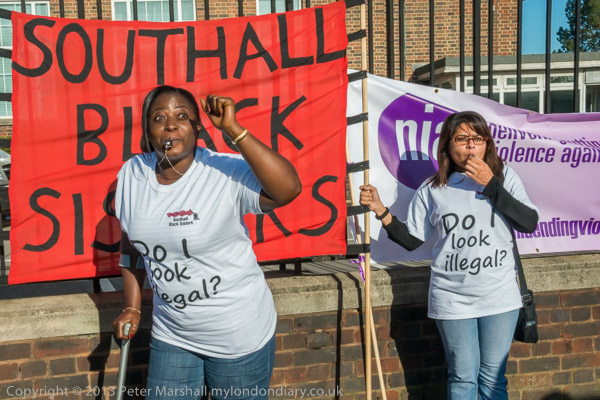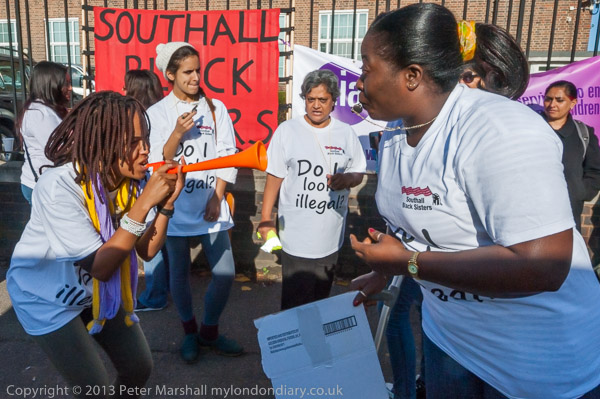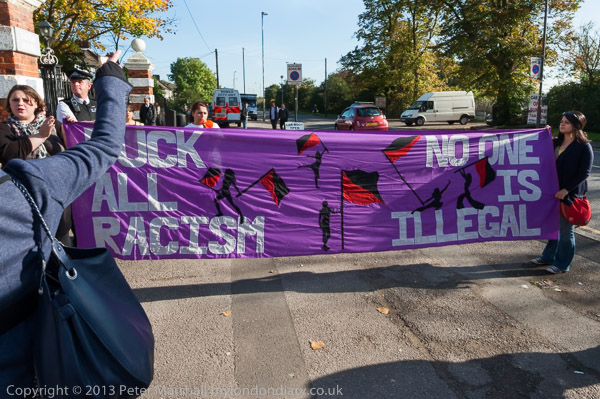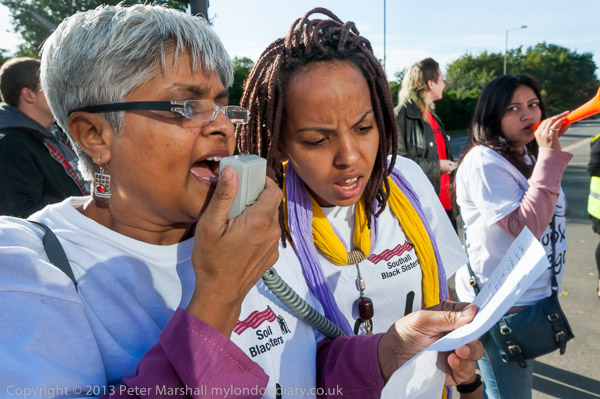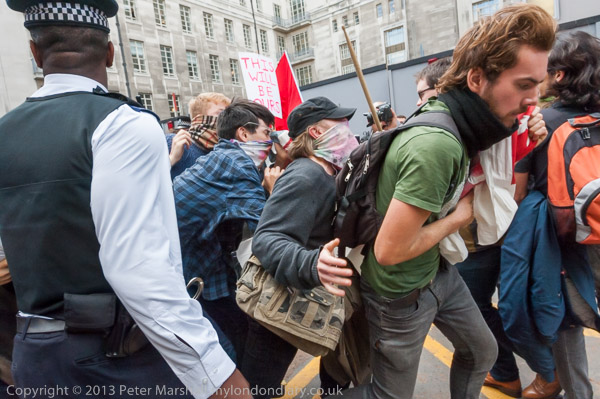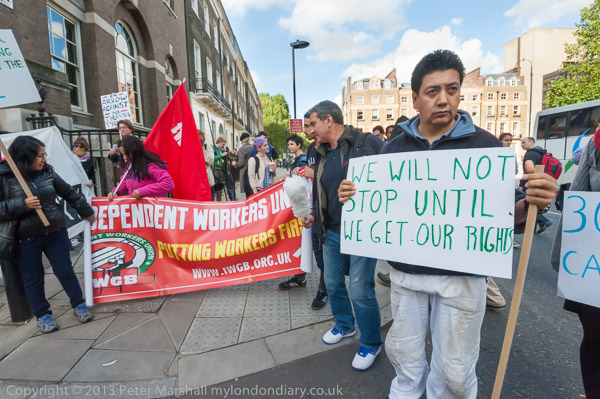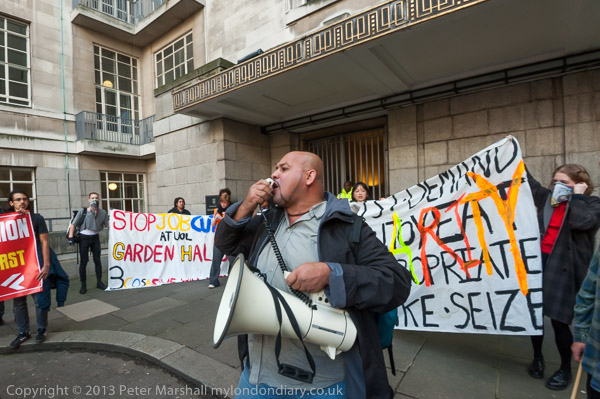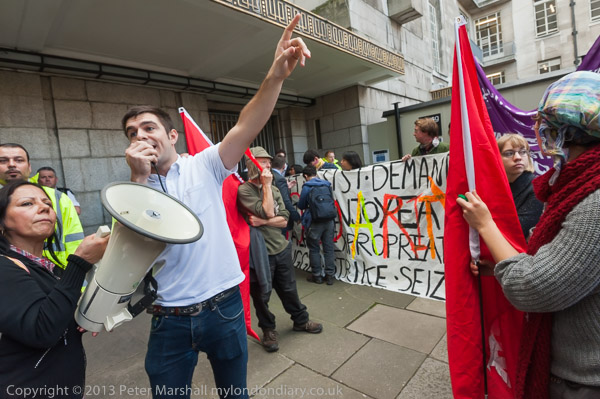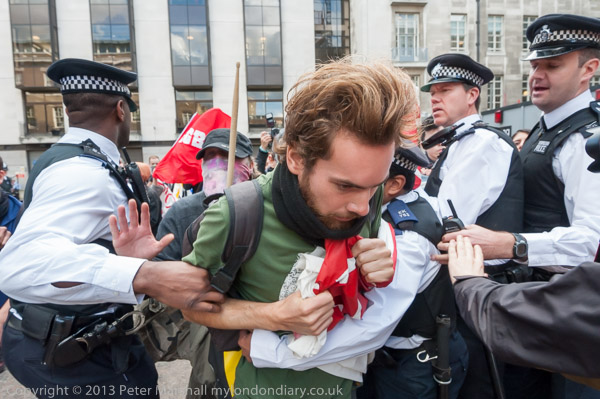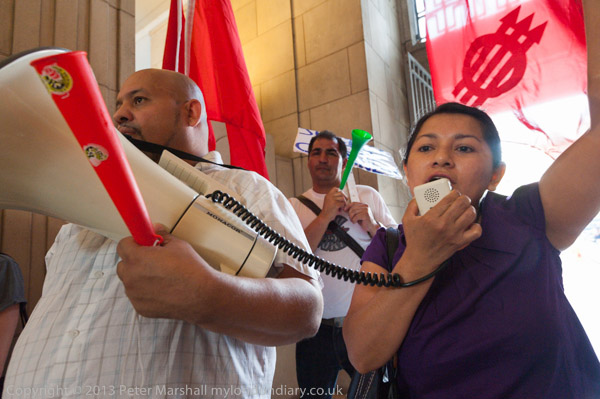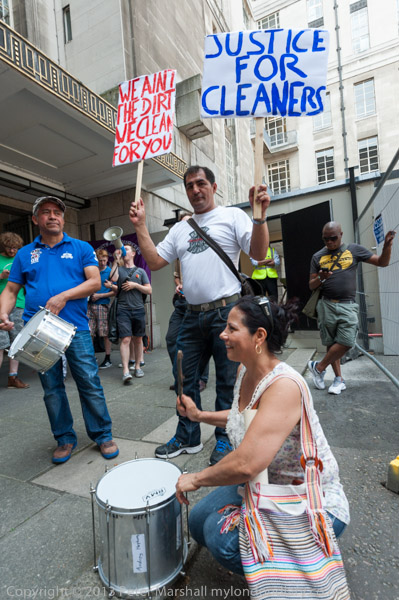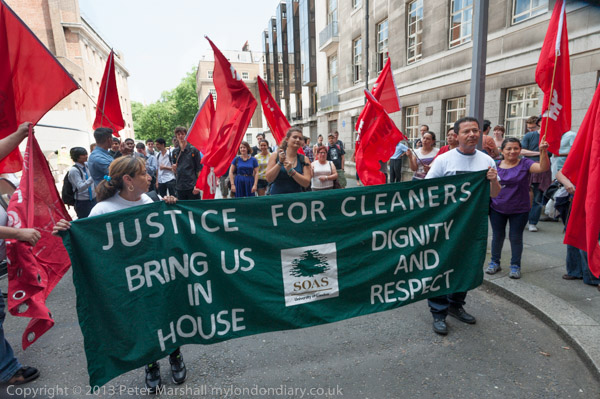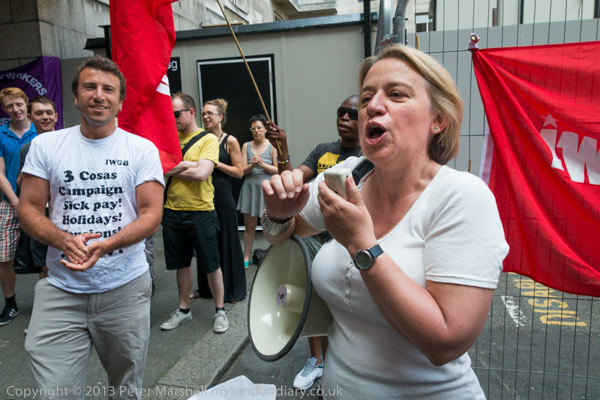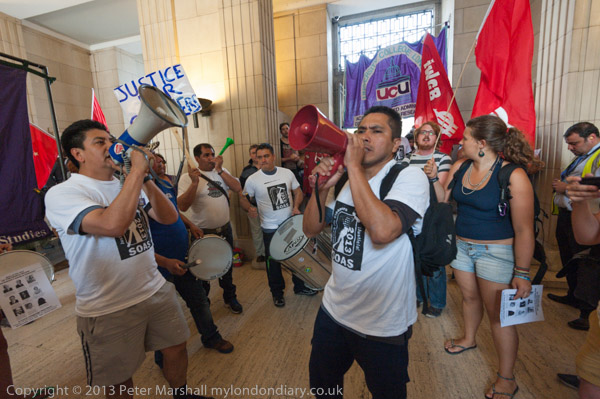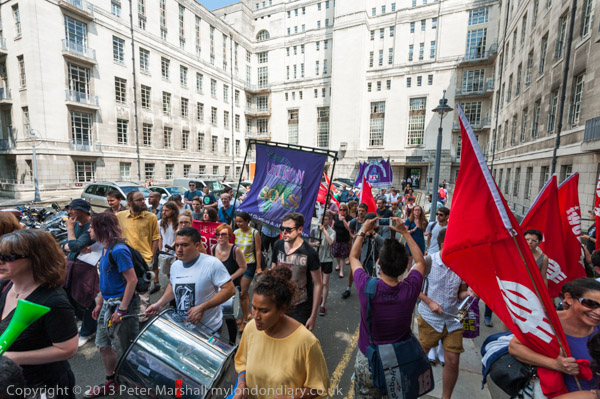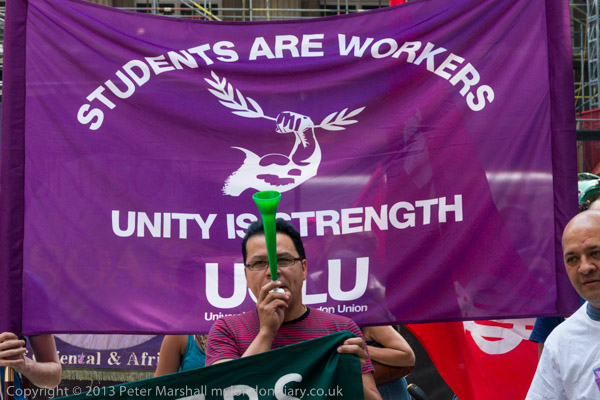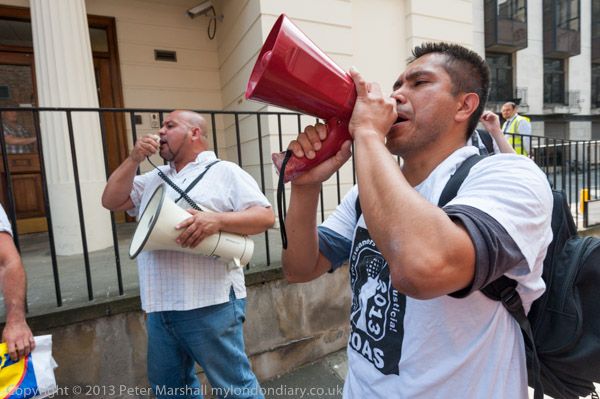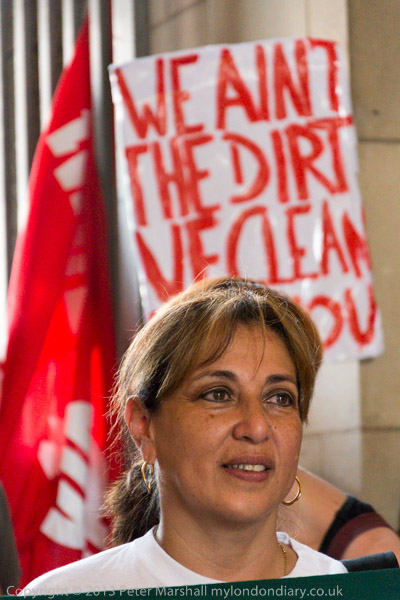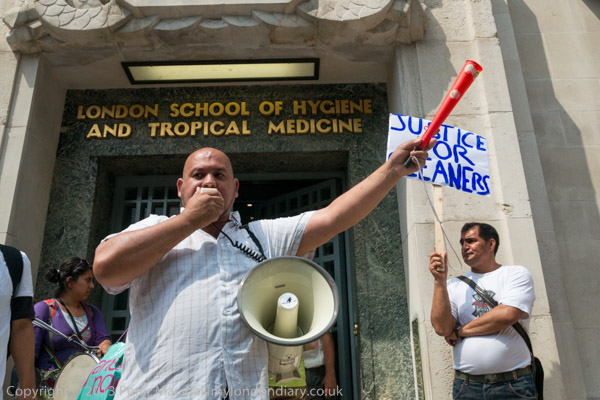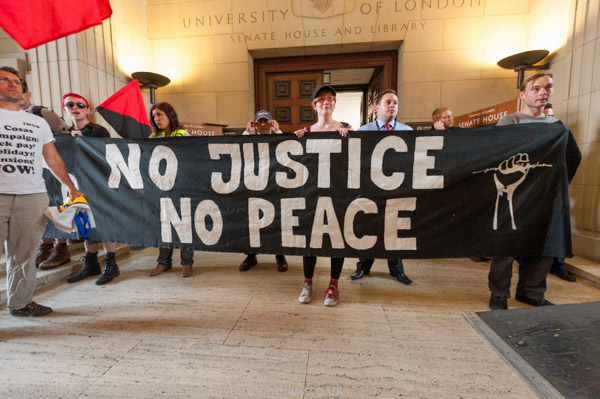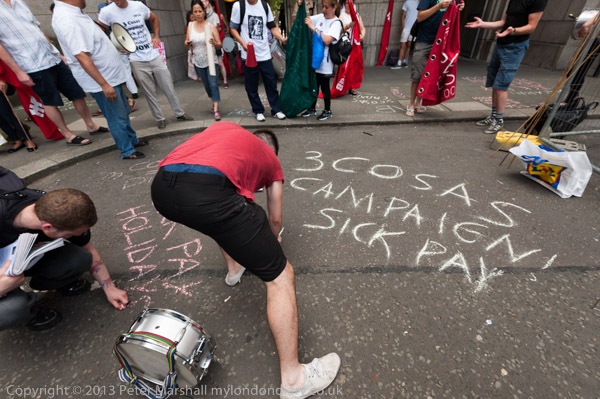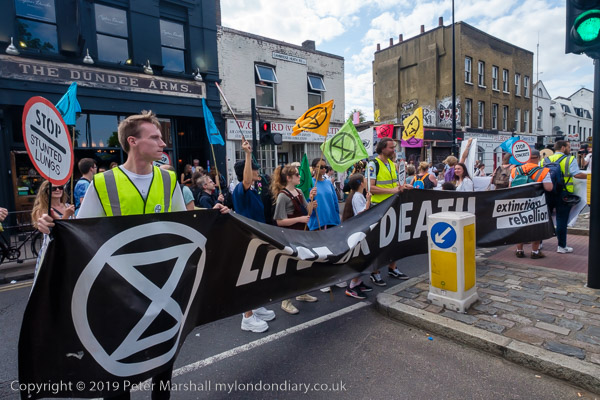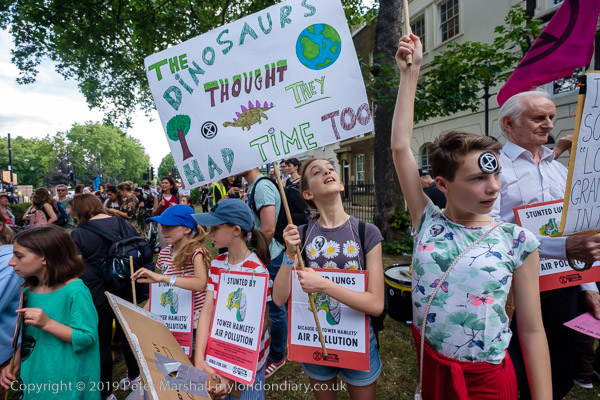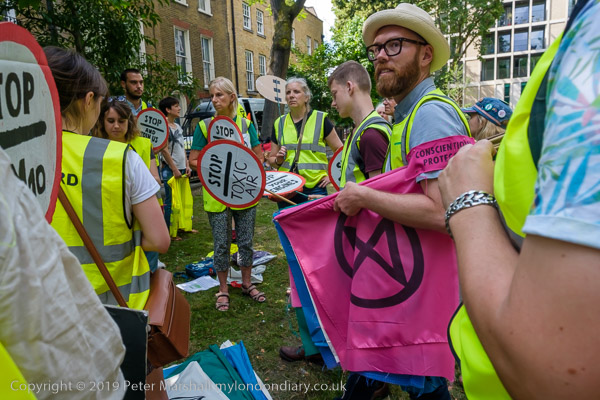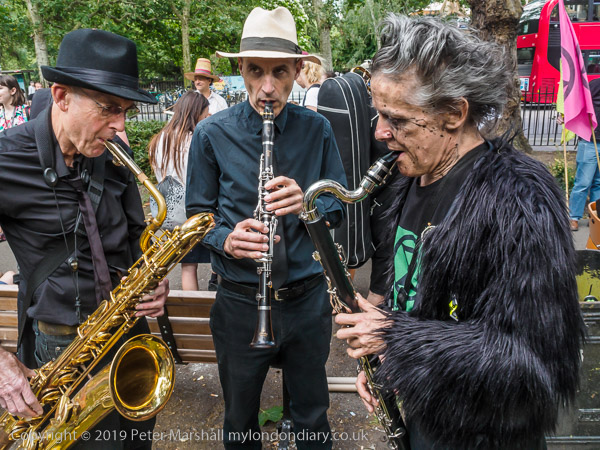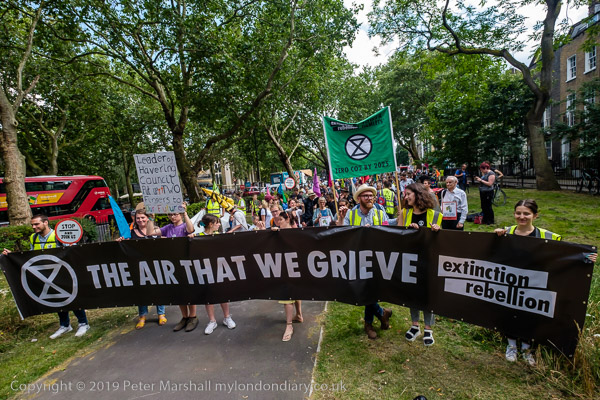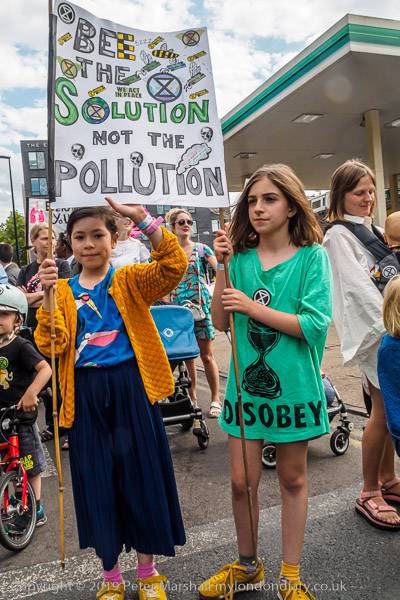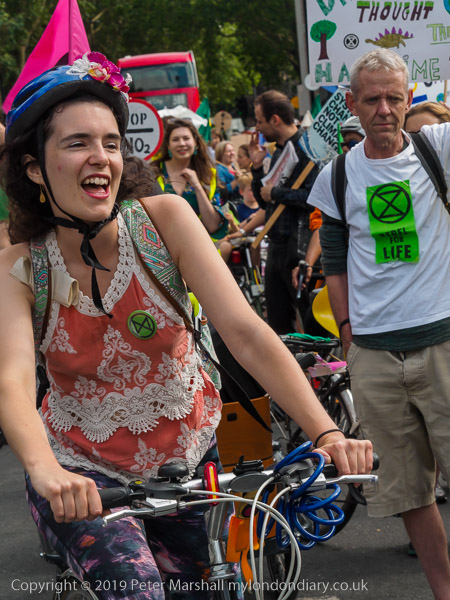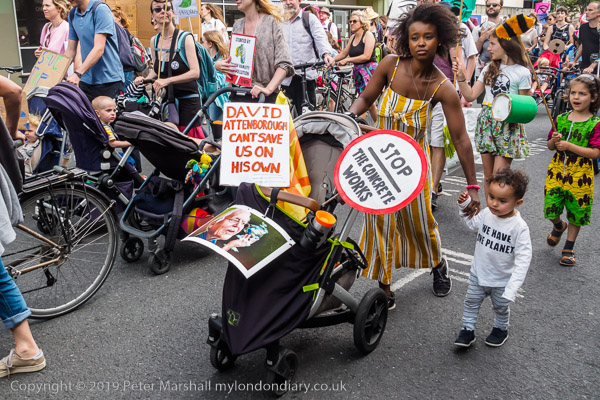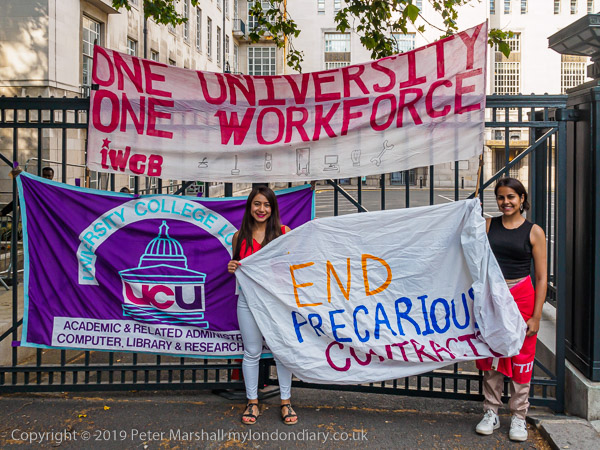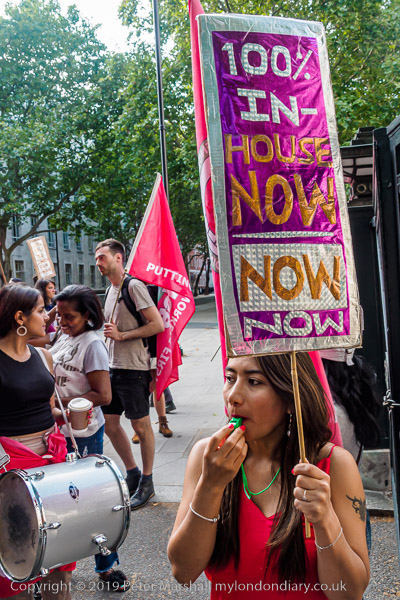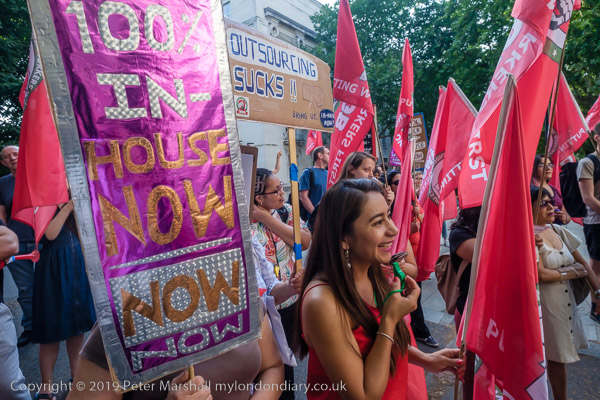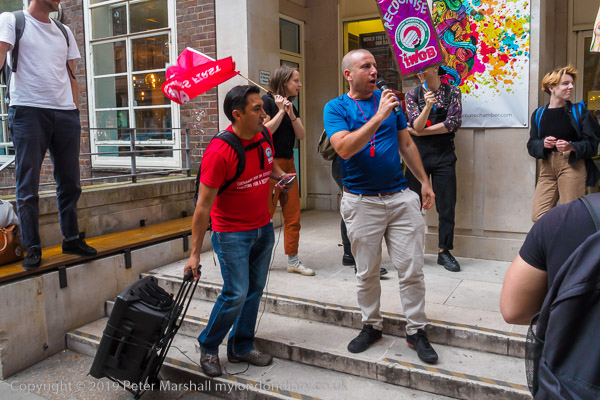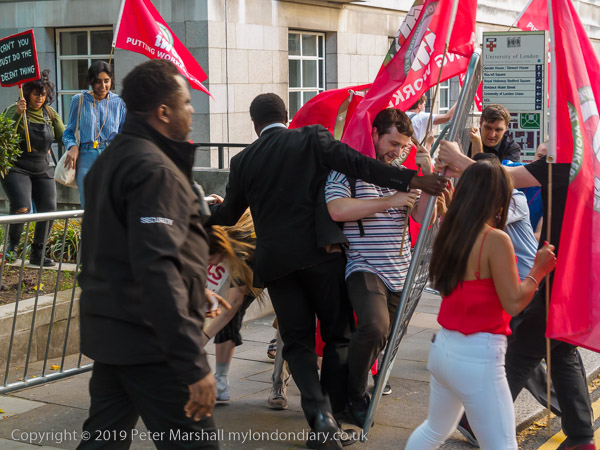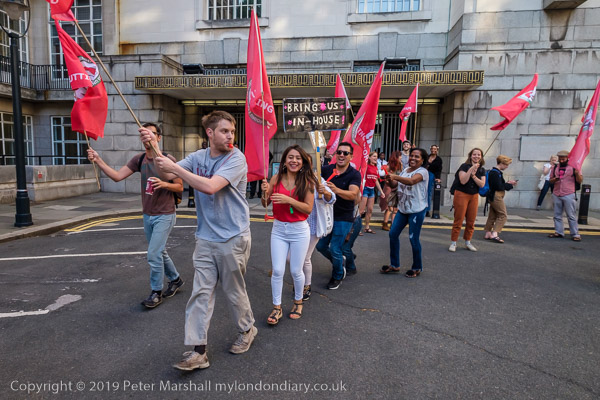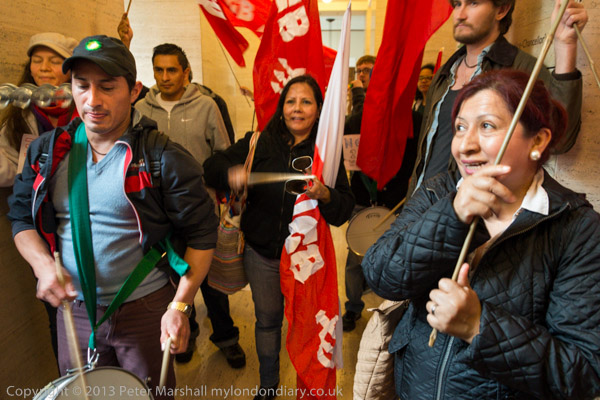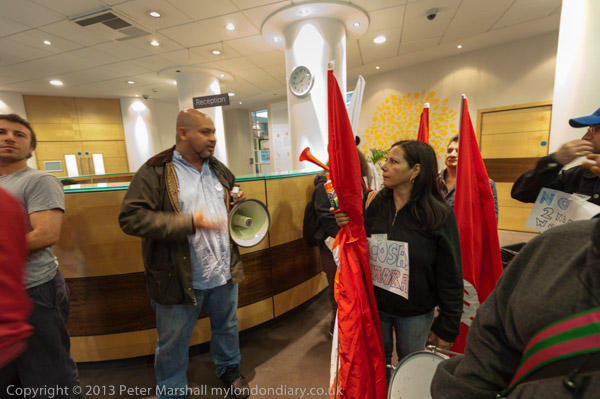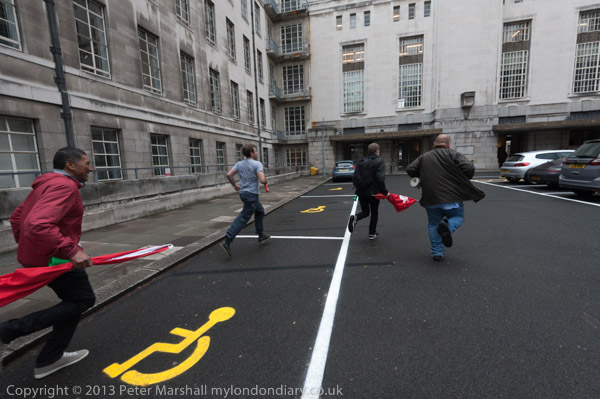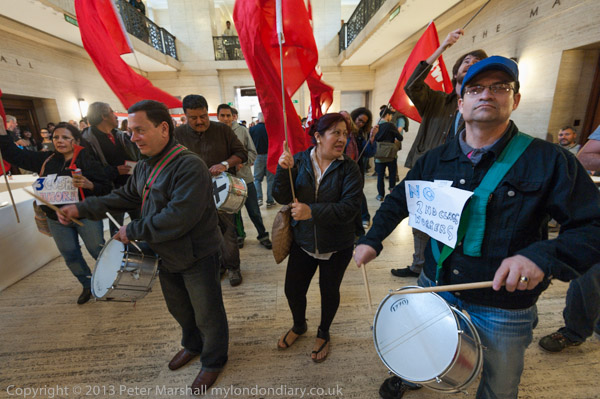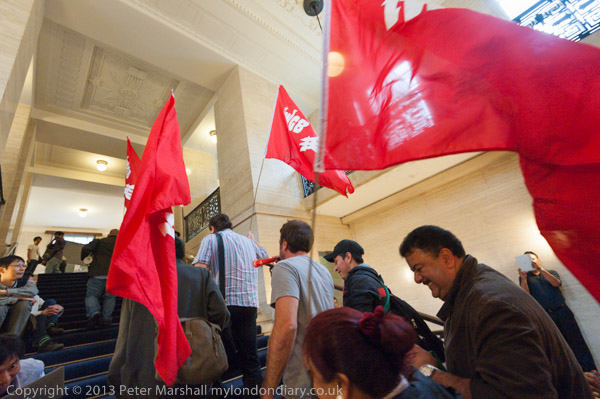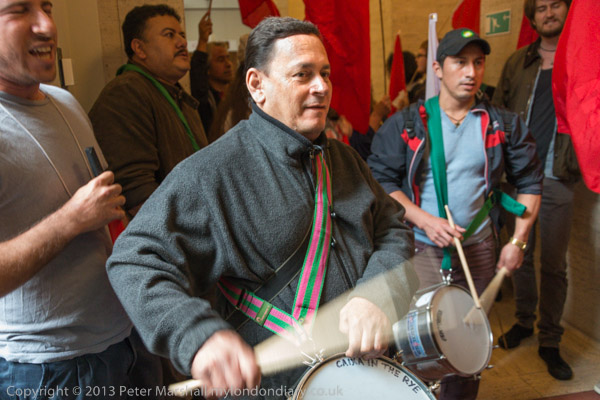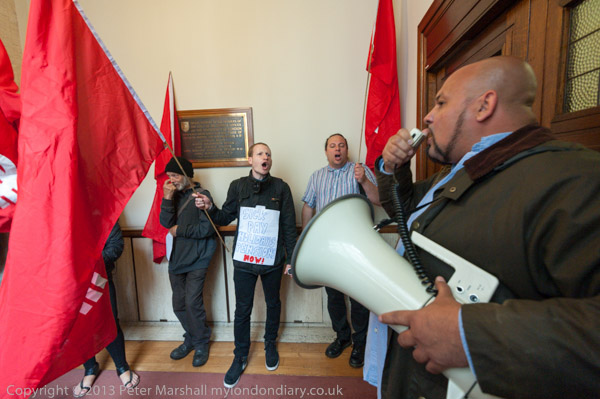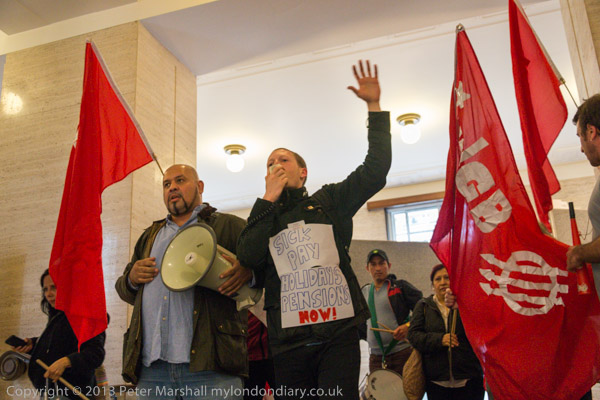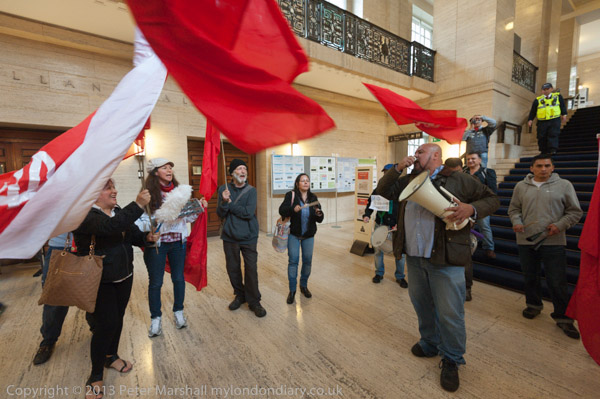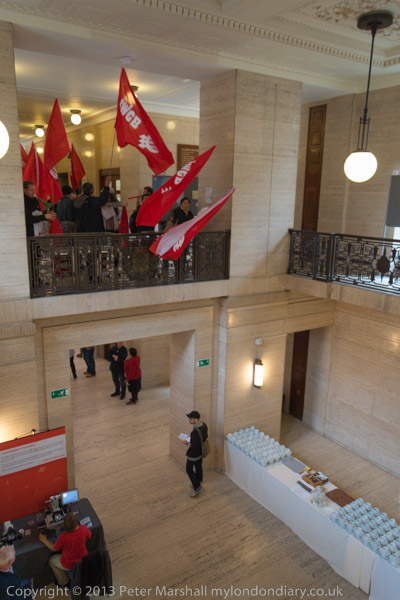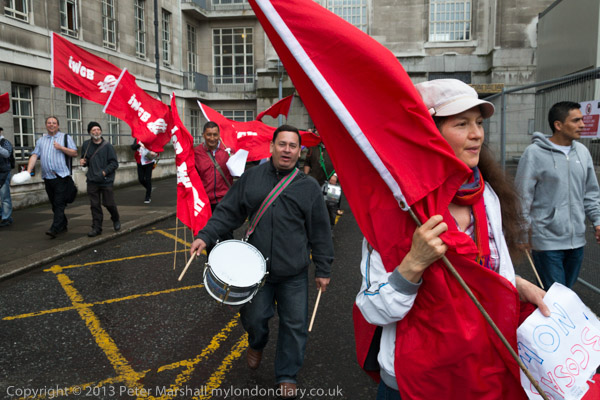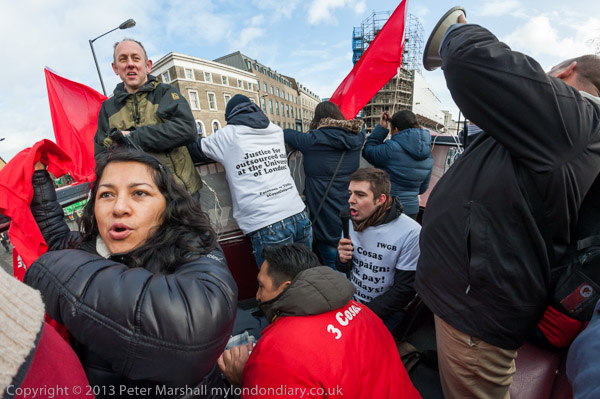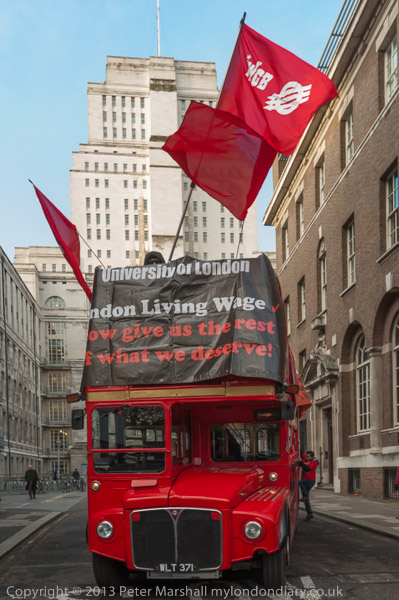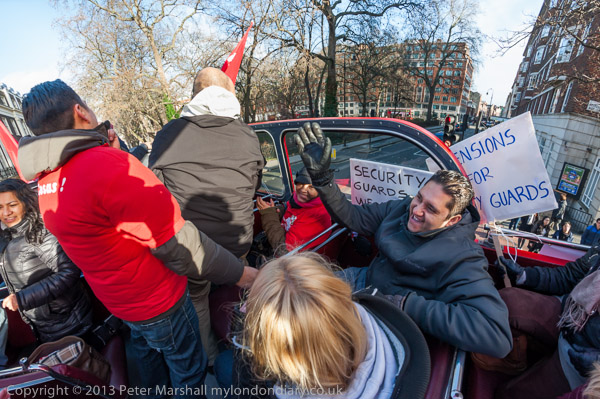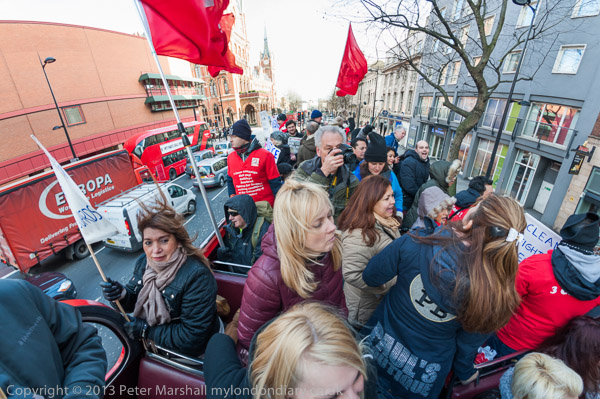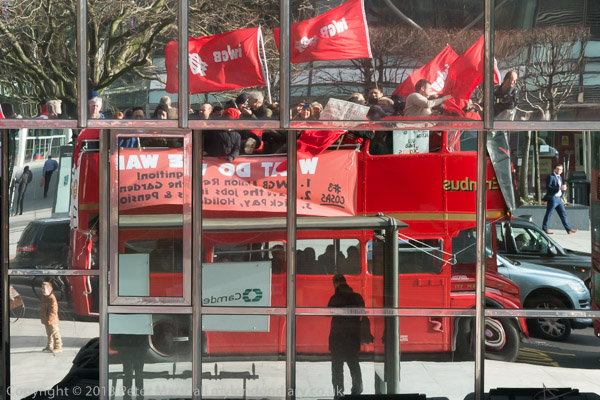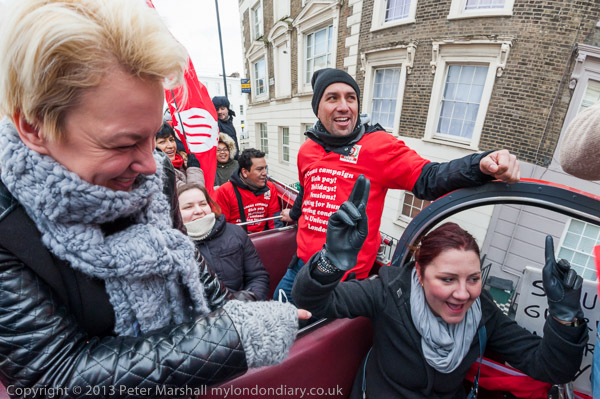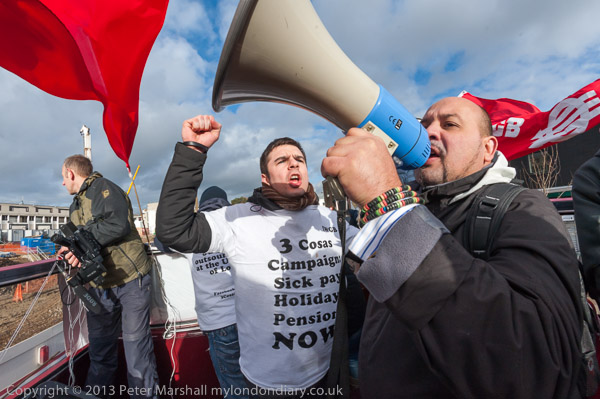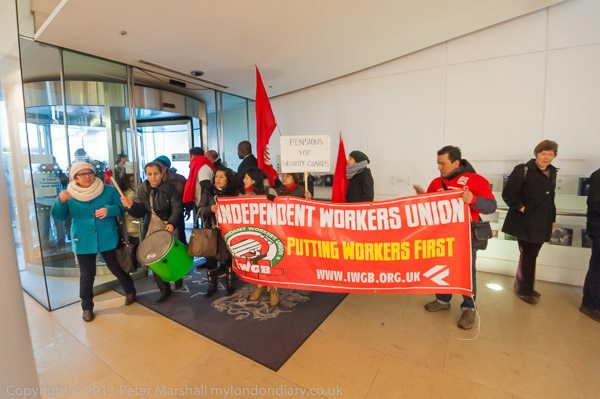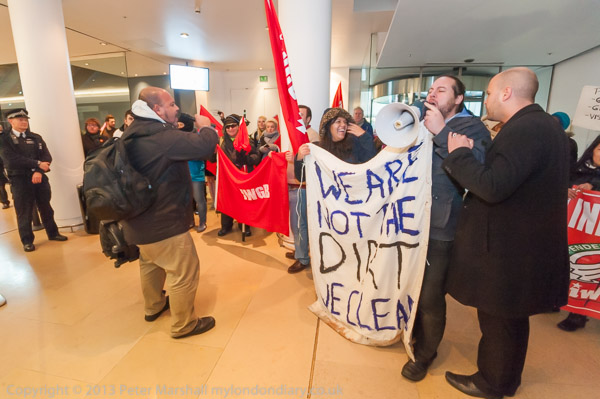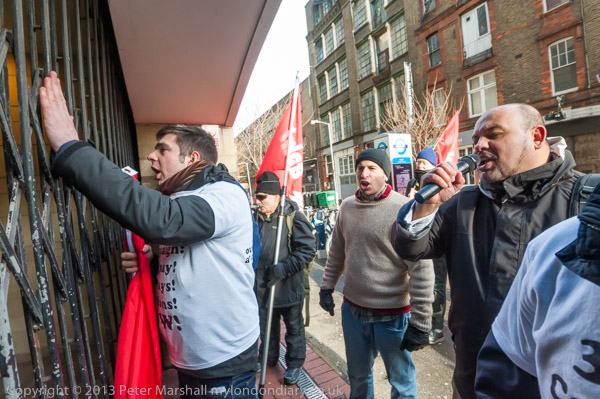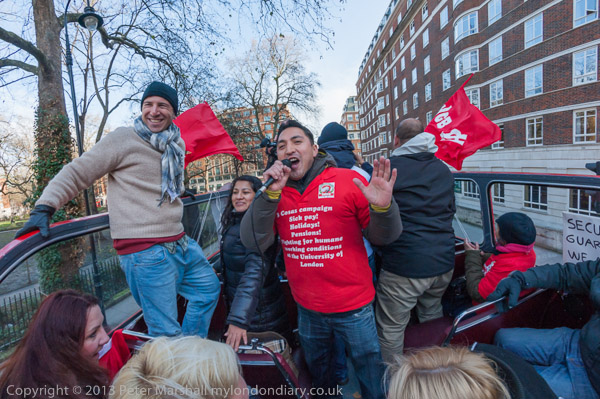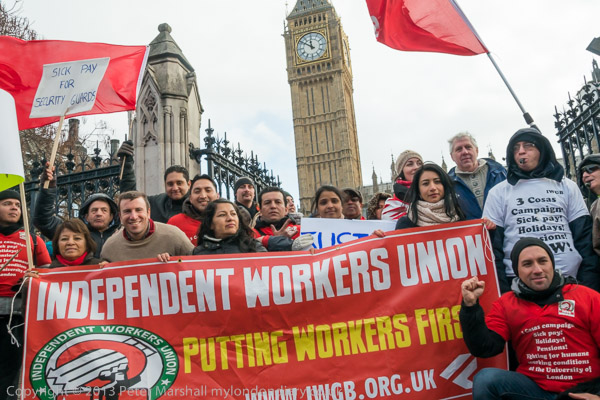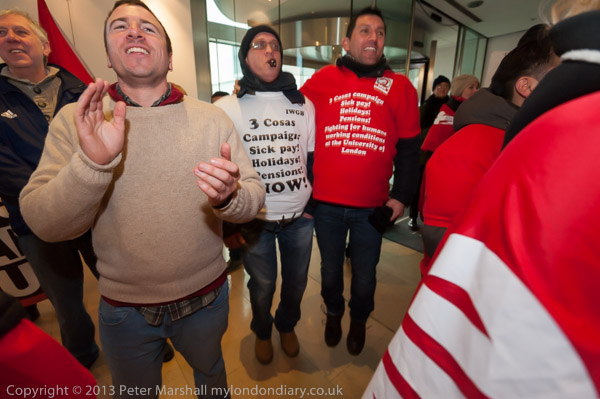Ten years ago today, on Wednesday 28th November 2012, I photographed two protests at London University. The first at UCL against their plans for a new campus in Stratford and the second by outsourced workers at the University demanding decent conditions of employment.
Save Carpenters Estate from UCL – University College. Wednesday 28th November 2012
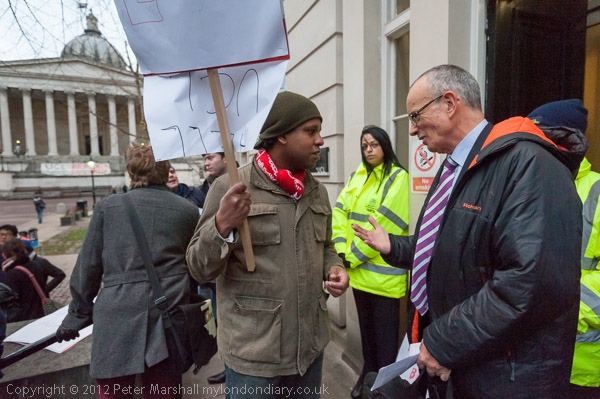
University College was founded in 1826 as London University, a secular alternative to the highly religious ancient institutions at Oxford and Cambridge. It bought an 8 acre area of waste land in Bloomsbury, just south of the Euston Road, and developed its elegant buildings around a large quadrangle. Although started in 1827, these were only finally completed in 1955.
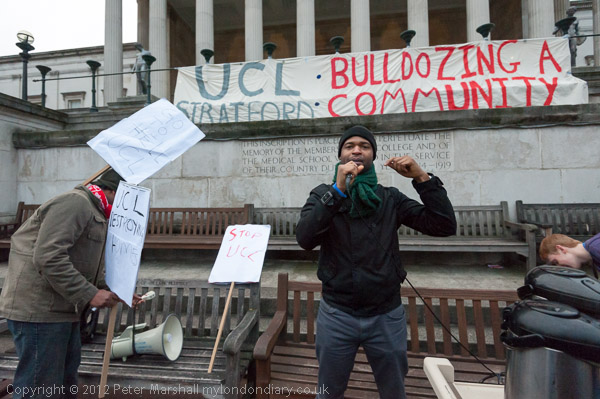
What had seemed a very large site when they started now with many more students seems very restrictive, and in October 2012 UCL announced it had come to an agreement with Newham Council to take over the entire site of the Carpenters Estate close to the centre of Stratford, displacing all of the residents remaining in this popular council estate.
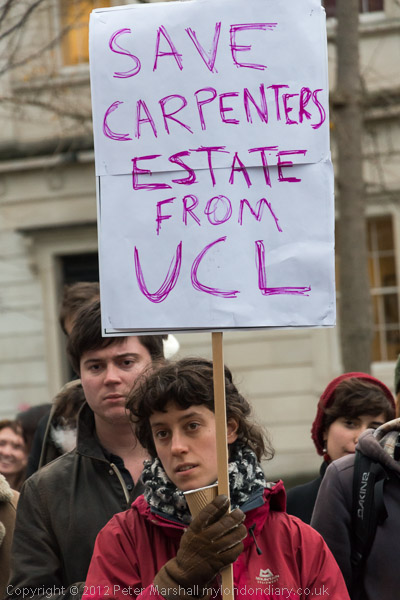
Newham Council, under its elected Mayor Robin Wales had long been hoping to realise a huge amount of cash by selling off the Carpenters Estate, a now extremely valuable area particularly because of its location close to Stratford Station and had been emptying out properties since around 2004 to facilitate this. UCL’s £1 billion proposal was exactly the kind of deal they had in mind, and it was quickly approved.
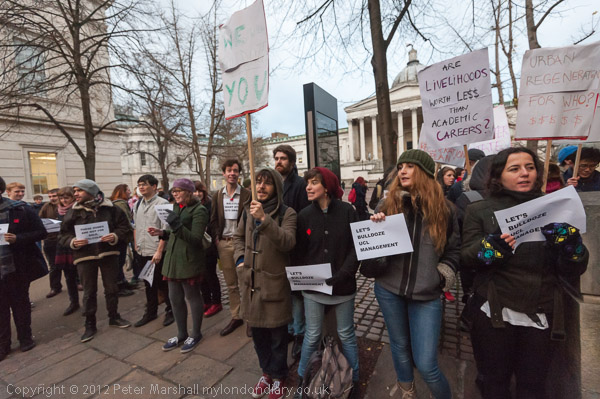
Residents remaining on the estate had for some years been fighting to remain in their homes forming CARP (Carpenters Against Regeneration Plan) to oppose the emptying and estate demolition under so-called ‘regeneration’. Newham’s reaction was to used underhand means to remove many of the activists from the tenant’s management organisation, but most most of the remaining members were now opposed to the UCL scheme.
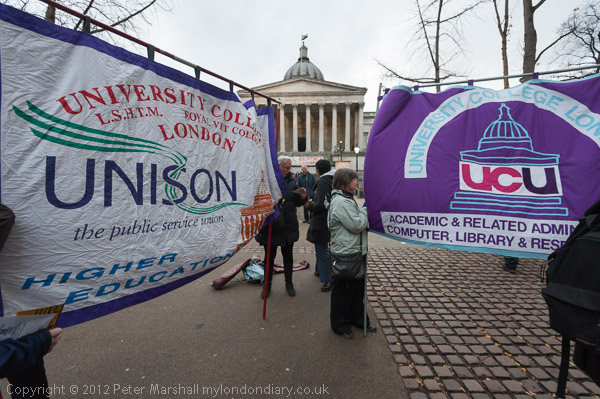
Also expressing concern about the proposal were UCL’s own highly-regarded development planning unit, who issued a statement calling for a review of the proposals which should “include a clear commitment to the well-being of local and East London borough residents, the active participation of affected communities, as well as engagement with local government” of a scheme which had only emerged from private talks between Newham Council and UCL.
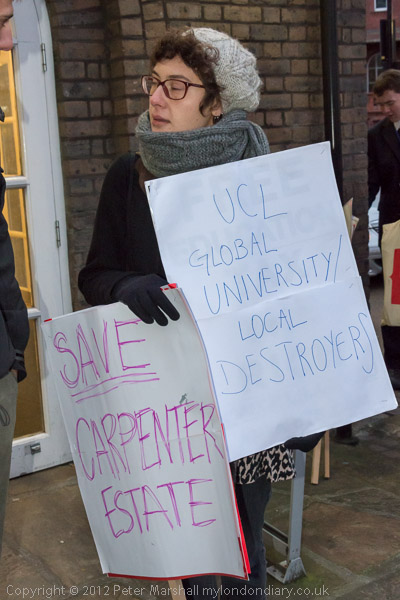
The protest at UCL began in the Main Quad with around a hundred people, including leading members of CARP and students and staff of UCL. After a few short speeches, the protesters moved to picket the main entrance to the building where the UCL council meeting had been rescheduled. They were then able to talk with some of the council members as they went in to the meeting, and one of these assured the protesters that the plans were not fully developed and there would be consultation with the residents before any development took place.
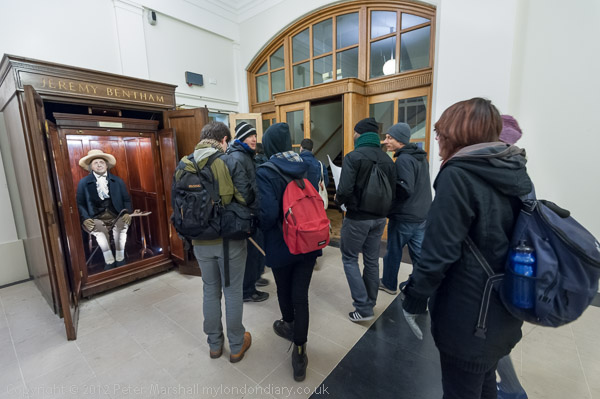
More protesters arrived, including members of Unison and the UCU who were picketing the meeting about proposals to change academic contracts which they say threaten academic freedom. The protesters then heard that the council meeting had been moved, and they decided to try to go closer to the new venue, moving into the university building. I walked with them, going past the dressed skeleton of Jeremy Bentham to a meeting room where they decided to hold an alternative council meeting. I left to go to another event, but some of the protesters kept up an ocupation of part of UCL for most of the day.
Save Carpenters Estate from UCL
3 Cosas – Sick Pay, Holidays and Pensions – Senate House, University of London.
Wednesday 28th November 2012
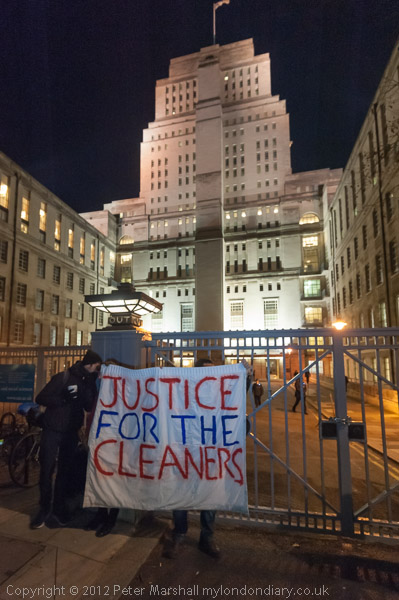
UCL and the University of London both received charters officially establishing them on 28th November 1836, and so today UoL was celebrating its Founder’s Day with an evening event inside Senate House. Cleaners and other low paid outsourced workers at the University of London protested outside the celebrations, calling for an end to unfair conditions and for equal employment rights — the ‘3 Cosas’ of Sick pay, Holiday Pay and Pensions.
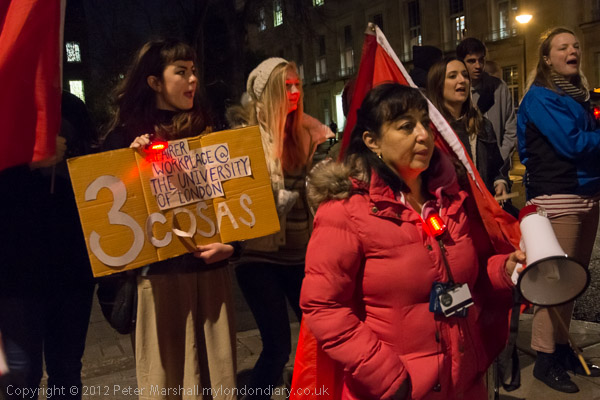
UoL outsources its cleaning, maintenance, security, and catering services to private companies who cut their costs to make profits by paying low wages, with the legal minimums of sick pay, pathetic or no pension schemes, major pay problems, and lots of intimidation and bullying. They work under conditions no reputable employer would consider imposing – and much worse than similar grades of workers directly employed by the University alongside them in the same buildings.
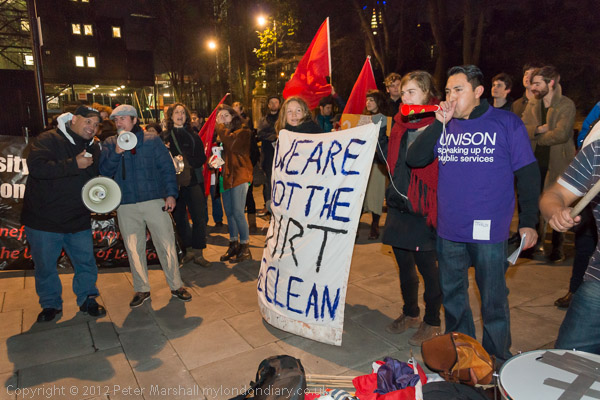
The services these workers provide are essential in keeping the University running, but they are treated unfairly. Protests over several years led by Unison have led to the university finally agreeing that all those working on the site should be paid the London Living Wage. Many of the outsourced staff are Spanish speakers, some migrants granted asylum or right to remain and others EU citizens, often with qualifications not recognised in the UK. Their ‘3 Cosas’ campaign was led by Unison branches and the cleaners’ union, the IWGB, and supported by students and academics.
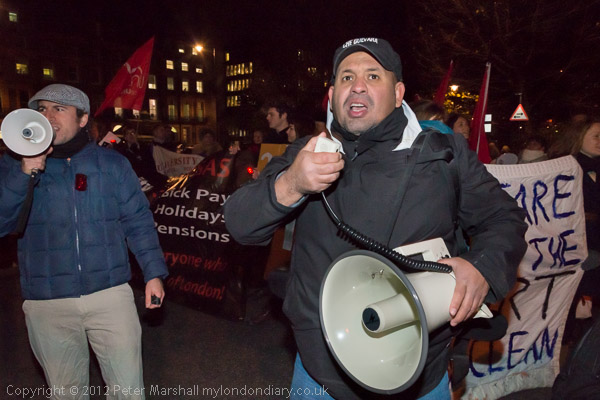
Over 50 protesters, some with drums and many with banners and flags protested outside the main gates to Senate House, handing out leaflets to those attending the Founders Day event. Many took these, while others angrily brushed them aside.
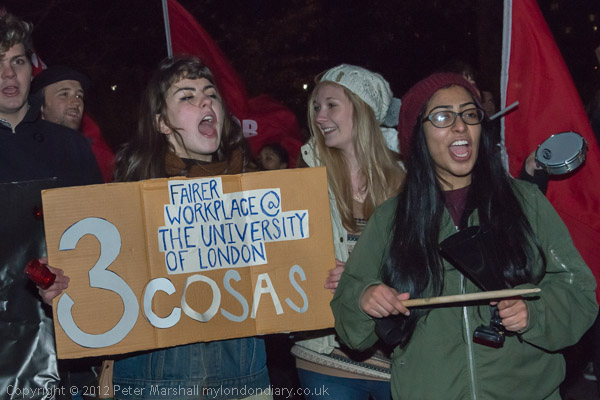
One student president who had an invitation to the event stopped to address the protest, only prepared to cross the picket line after the protesters after the protesters gave him leaflets and urged him to go inside and argue for their case.
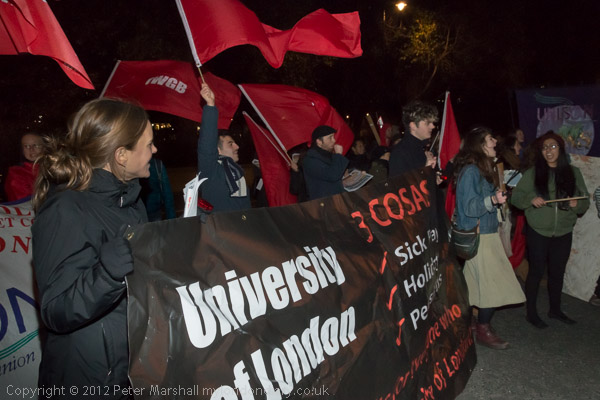
Some of those attending the event were going in by the back way, and after a while the protesters noisily marched around the street along the side of the building to continue the protest there. The protest was still continuing when I decided it was time to go home.
3 Cosas – Sick Pay, Holidays and Pensions.
